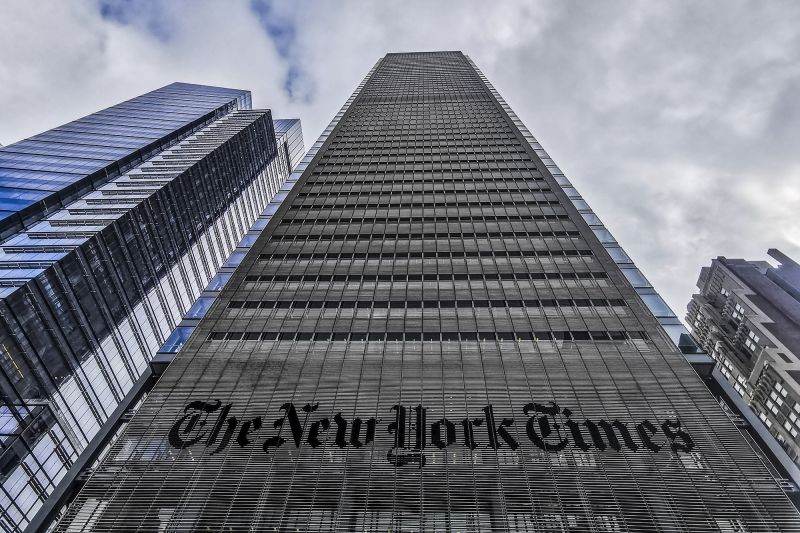
OpenAI dismisses The New York Times' copyright lawsuit as baseless

OpenAI dismisses The New York Times' copyright lawsuit as baseless, refuting allegations of unauthorized use of Times journalism to train its AI systems
OpenAI responded to The New York Times' lawsuit last month, denying the allegations that it violated copyright law by using Times journalism to train its systems. In a blog post, OpenAI stated that the suit is "without merit" and claimed that the Times is not telling the full story. OpenAI further expressed its goals of supporting a healthy news ecosystem, being a good partner, and creating mutually beneficial opportunities.
In December, The New York Times filed a lawsuit against OpenAI, along with its business partner and investor Microsoft, for violating copyright laws. The Times claimed that the two companies used their artificial intelligence technologies to unlawfully replicate millions of Times articles in order to train ChatGPT and other services, creating competition with The Times. (Microsoft has not responded to the lawsuit.)
The lawsuit is just one in a series of recent legal actions aimed at restricting the purported extraction of extensive amounts of content from various online sources without proper compensation, in order to feed what are known as large language AI models.
New York Times newspaper office building is seen in Manhattan, New York, United States, on October 26, 2022.
Beata Zawrzel/NurPhoto/Getty Images
The New York Times has filed a lawsuit against OpenAI and Microsoft for violating copyright laws. In response, OpenAI maintains that training AI systems with publicly available internet materials should be allowed under fair use protections. The company stated that this principle is fair to creators, essential for innovators, and vital for US competitiveness.
The New York Times refuted OpenAI's fair use argument in its complaint, alleging that ChatGPT and Microsoft's Bing chatbot offer a comparable service to the newspaper. The Times stated in its complaint that there is nothing transformative about using its content without payment to produce products that replace and divert audiences from the publication. It further argued that because the outputs of Defendants' GenAI models compete with and closely mimic the inputs used to train them, copying The Times' works for that purpose does not constitute fair use.
OpenAI's formal response to the lawsuit in court is still unknown, as there have been no new public filings available as of Monday afternoon. CNN has contacted The New York Times for a statement regarding OpenAI's response.
The New York Times complaint states that AI tools trained on its content occasionally produce exact copies of sections of Times reports. OpenAI responded on Monday, referring to this issue as a "rare bug" and stating that they are actively working to minimize its occurrence.
OpenAI emphasized the importance of responsible user behavior, stating that intentionally manipulating their models to regurgitate information is not acceptable and violates their terms of use. Additionally, the tech company accused The Times of intentionally manipulating ChatGPT and selectively choosing copycat examples in its complaint.
OpenAI has also highlighted its licensing agreements with other publishers such as Axel Springer and the Associated Press to fairly compensate them for using their content to train its models. It also allows outlets to choose not to have their sites scraped by its tools, as The New York Times did in August.
The complaint from The New York Times alleged that despite spending months negotiating with OpenAI and Microsoft, it was unable to reach a fair resolution for fair compensation and terms of a similar licensing agreement.
OpenAI revealed on Monday that the discussions had persisted until December 19th, just one week before The Times filed its complaint.
According to OpenAI, the talks centered on a significant partnership involving real-time display with attribution in ChatGPT. This collaboration would provide The New York Times with a novel way to engage with both their current and prospective readers, while also granting our users access to their news coverage.
"We regard The New York Times lawsuit to be without merit. Still, we are hopeful for a constructive partnership with The New York Times and respect its long history," it added.














